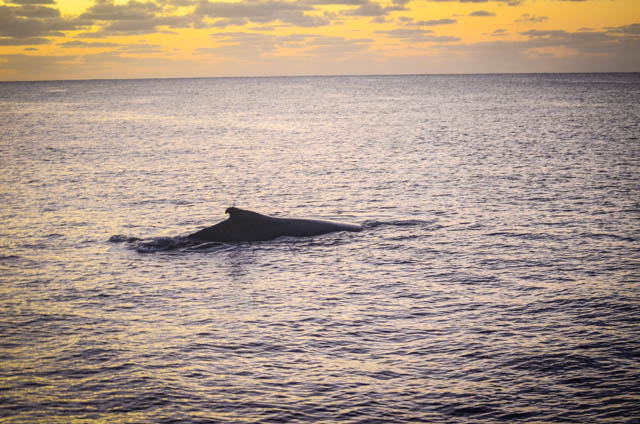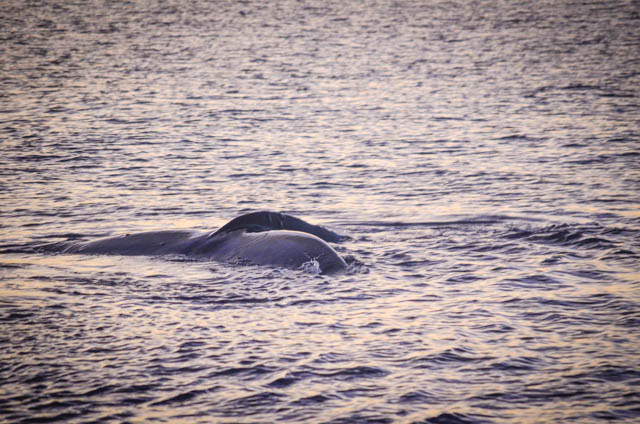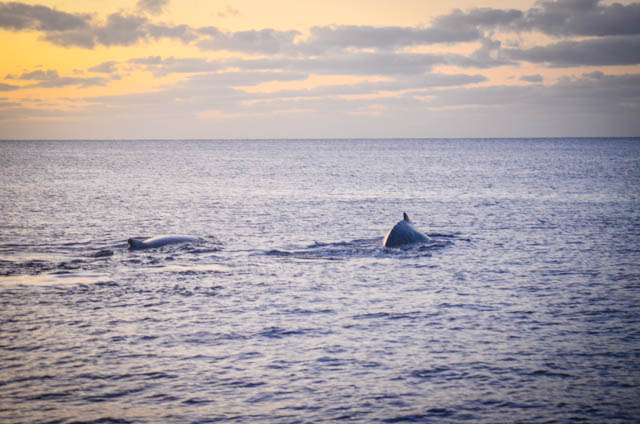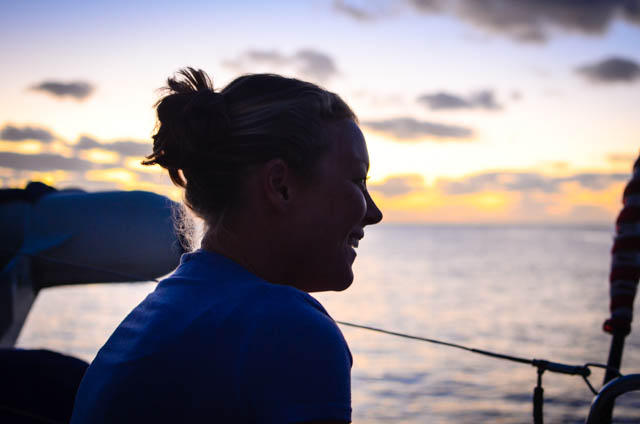Here’s a little video of our up close and personal experience with the humpback whales of Niue.
Read about the rest of our adventures in Niue here: Niue, Rock of Polynesia.

Here’s a little video of our up close and personal experience with the humpback whales of Niue.
Read about the rest of our adventures in Niue here: Niue, Rock of Polynesia.
Ever heard of Niue? I hadn’t either. We wouldn’t have stopped here but for our faulty autohelm, but in retrospect, the memory of a couple days of hand steering fades quickly in the shadow of the island’s charm. Niue is an isolated island country, in free association with New Zealand. Many people here are Kiwis, and apparently 95% of Niueans live in NZ. They must have exported all of the grumpy, sour citizens, because everyone we run into here is overly welcoming and amicable.
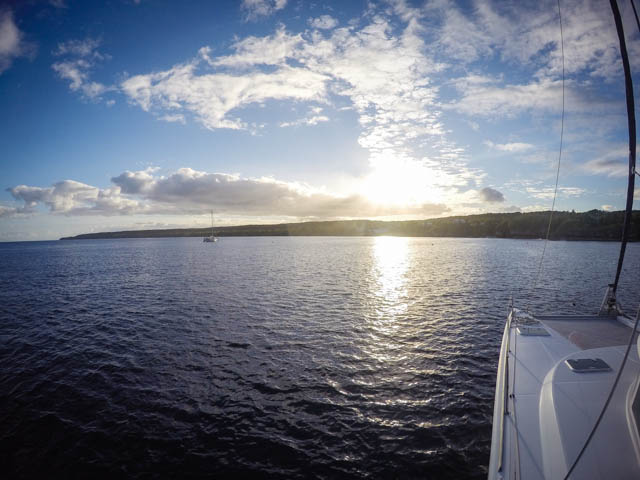
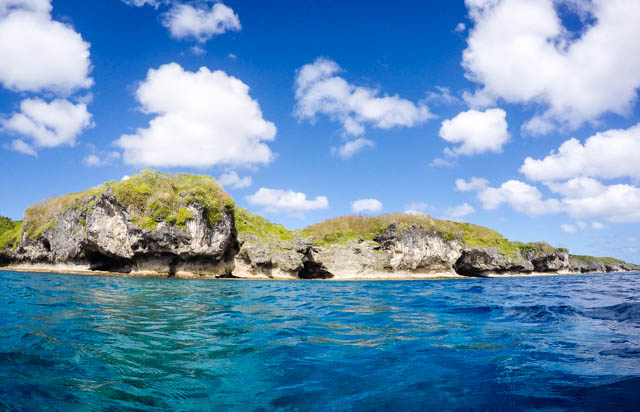
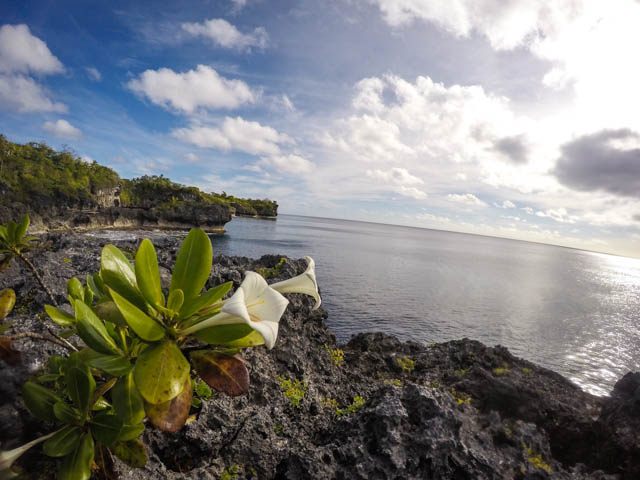
We checked into the country, a strenuous task involving calling Radio Niue on VHF 16 and meeting the van at the wharf. We sat in the back of the van, tailgate party style, and filled out the forms using knees and windows as writing surfaces. We are one of three cruising boats in the anchorage. It’s the only anchorage on the island, so I guess that makes us one of three boats in the country. Needless to say, the officials weren’t too worried about us smuggling contraband or illegally immigrating. Formalities were painless and the fifty dollar clearance fee was the least expensive we’ve seen in a long time.
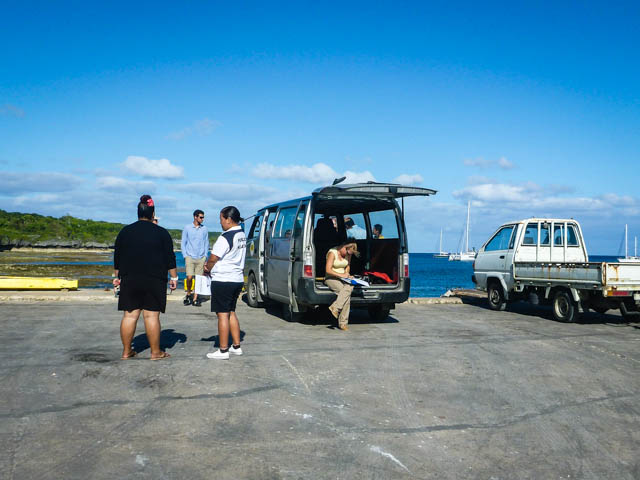
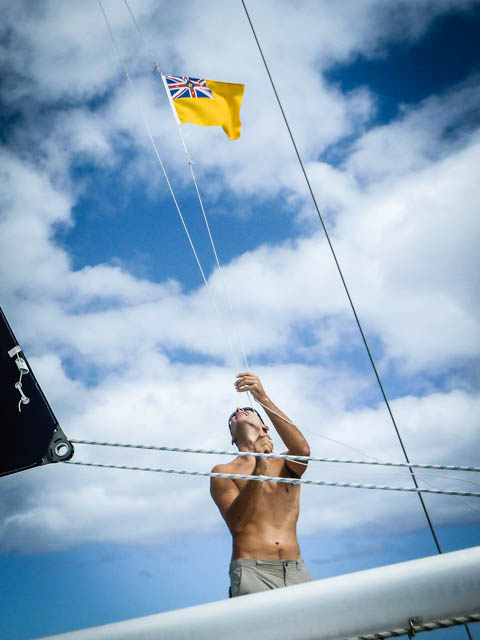
It’s too deep to anchor here. Ten paces from the cliff shore the seabed drops to one hundred plus feet. The Niueans have graciously provided robust moorings for we poor cruisers for a modest fee of $15 New Zealand dollars a night. I don’t know the exchange rate, so it’s pretty much free in my book. The bay is open to the west and gets some sizable swell at times. The unprotected wharf would shred the stoutest dinghy tied along side, so all the boats and hoisted awkwardly out of the sea by an odd crane and plunked unceremoniously on the pier. It’s standard operating procedure here I guess; even the locals coming back in respectable offshore fishing boats sling their craft in a harness and crane them onto trailers.
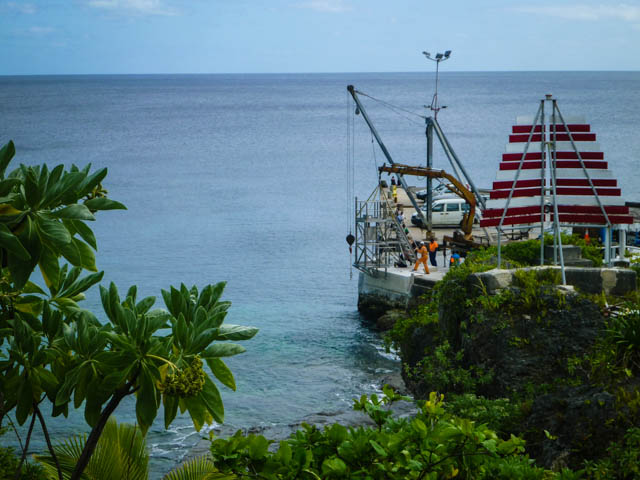
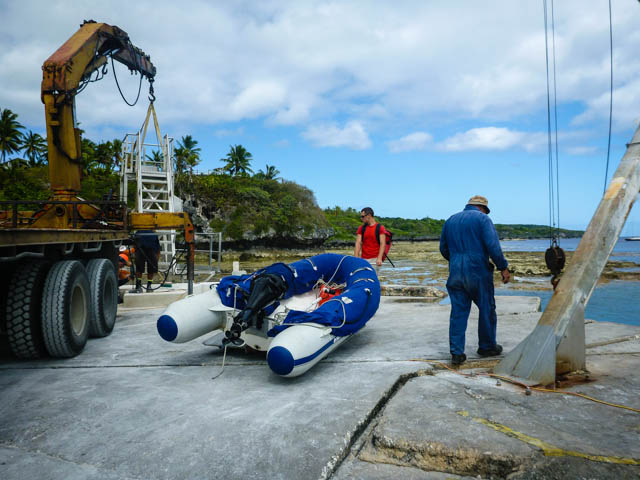
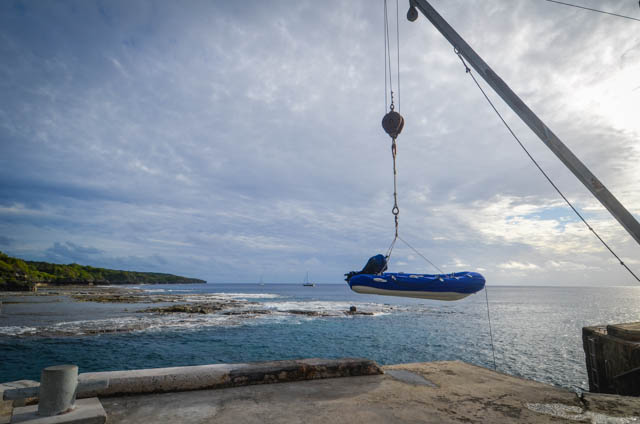
We got in the water right away after clearing in. The topography is amazing. The reef shallows extends fifty feet out, then plummets into deep blue. It’s a little spooky swimming out to the edge. Closer to shore, the coral is regenerating after getting shredded by a hurricane in 2004. There are also a species of sea krate that live only in Niue. They’re like a sea snake, but need to breathe air. It’s very exciting because they’re a fun combination of plentiful, highly curious, AND extremely venomous! They say that the krates can’t bite humans, but since they have jaws, venom, and a brain the size of a raisin we decided to throw on the long wetsuits and gloves. We’re pretending it’s because of the cooler waters here.
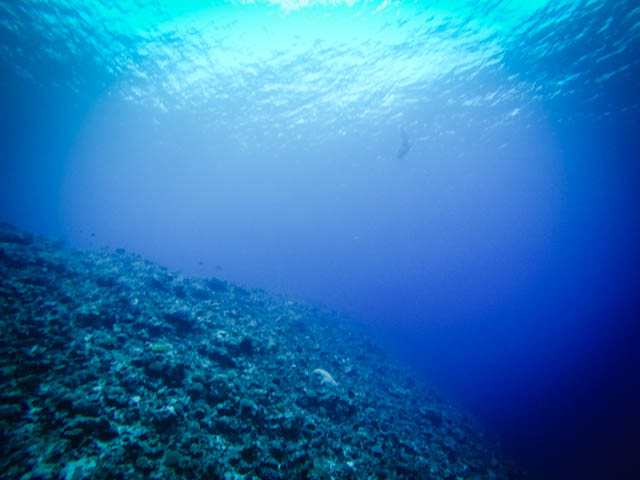
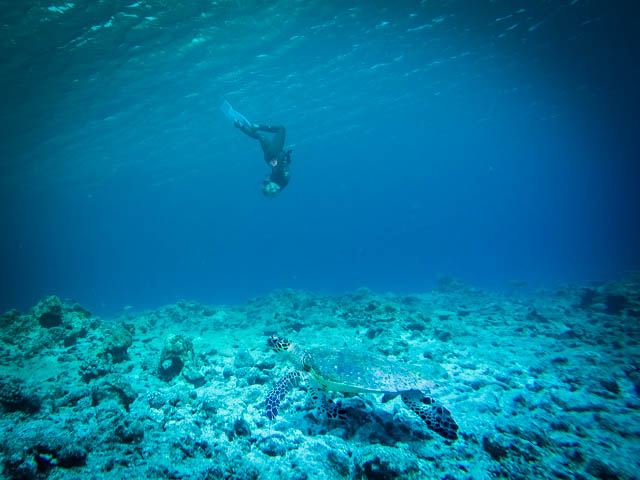
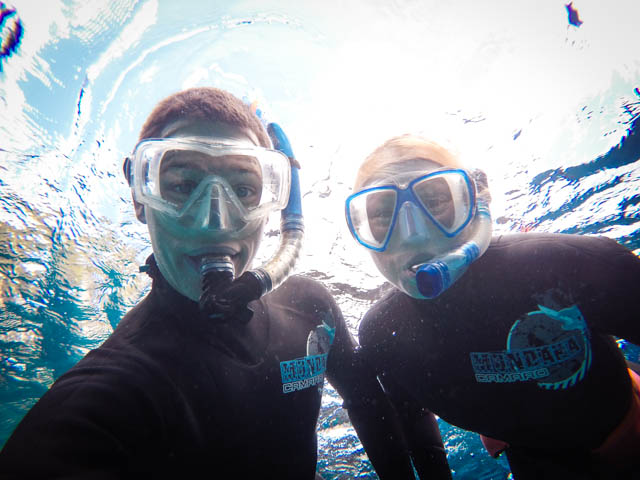
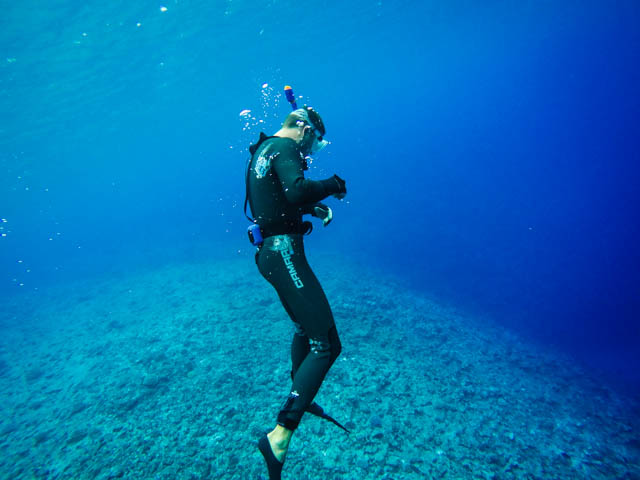
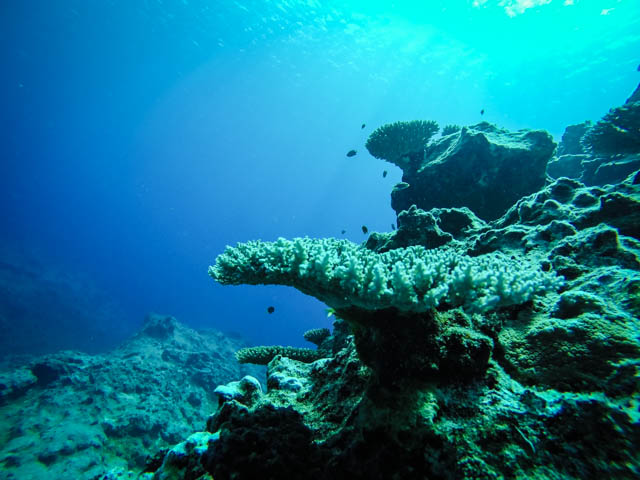
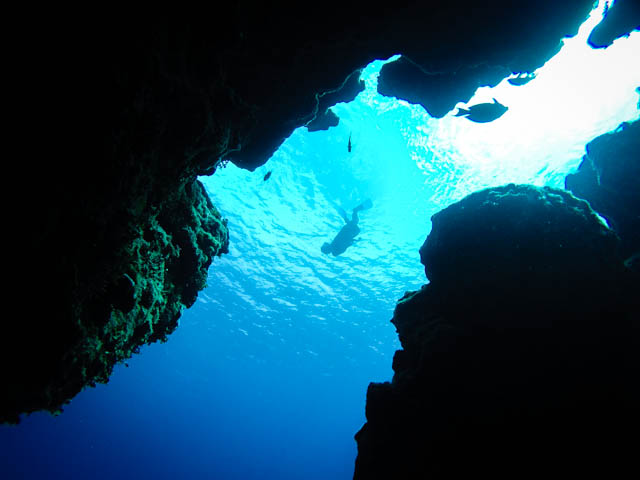
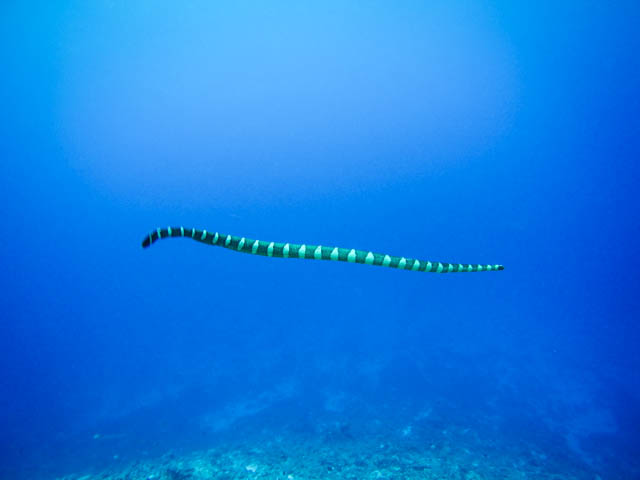
There are also myriad sea caves to explore, both above and below of the water. You need some good reef shoes, but it makes for fun exploration, a mixture of swimming and spelunking. The crabs clamber out of the way and the booms and sloshes of the swell echo through the passages.
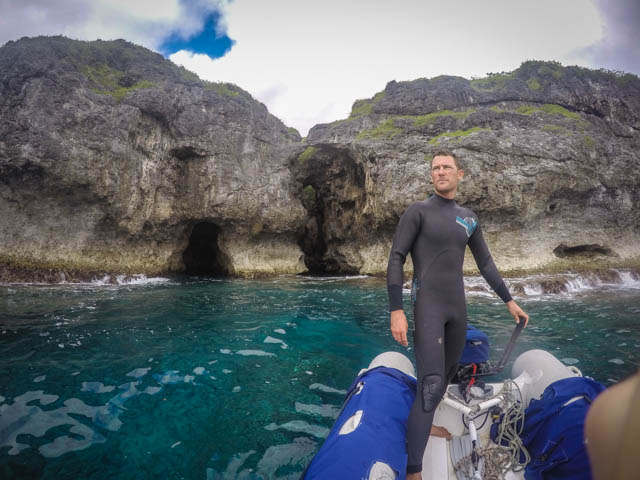
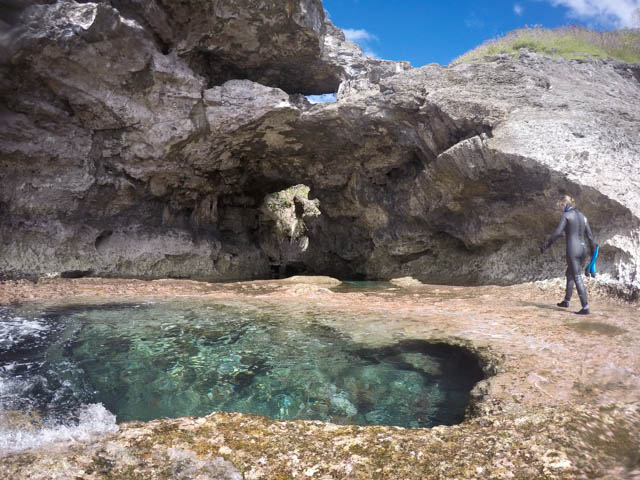
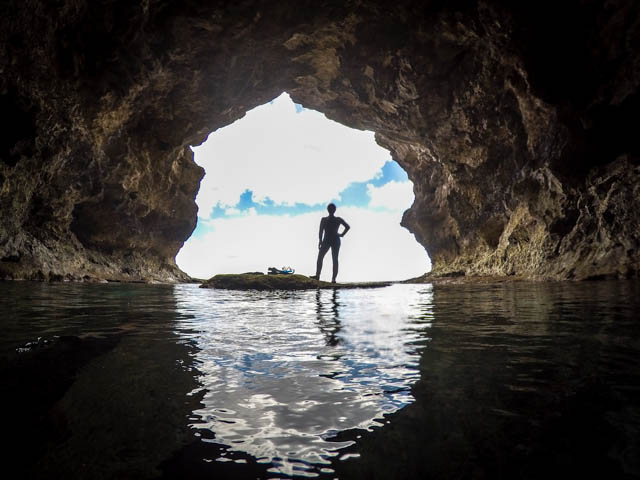
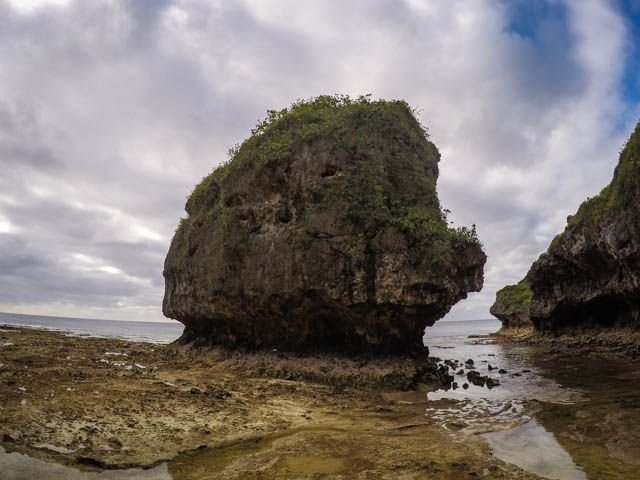
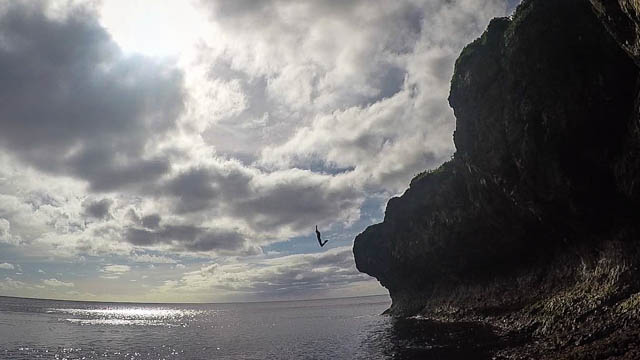
Back on Tayrona, between visits from humpback whales and outrigger fishermen, I pulled out the autohelm drive piston, a Raytheon Type 1 Linear Drive. Removing the plastic front cover exposes the motor which I peeled apart. I pulled off the stator housing and cleaned the rotor and commutator of fine black dust from wearing of the brushes. Thanks to Mr. Woods for making me tediously build an electric motor from scratch in high school. You never know when you’re going to use some of the things you learn. The clutch seemed to be working well when connected with reliable power but not when installed below, so I ran new wiring for the system and she fired right up! We went for a little sea trial to verify that all was in working order and then came back to our mooring. She’s back baby! Good-bye hand steering and good riddance!
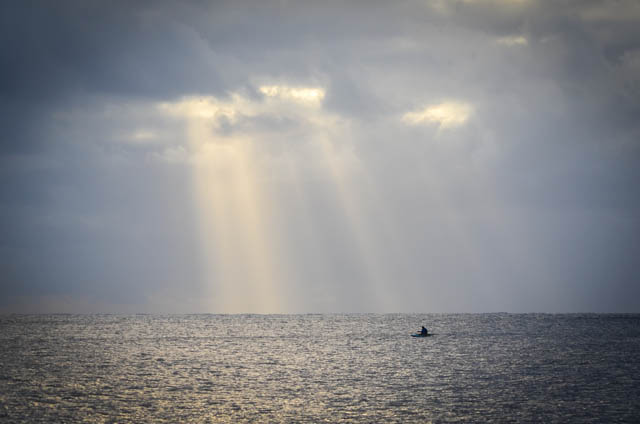
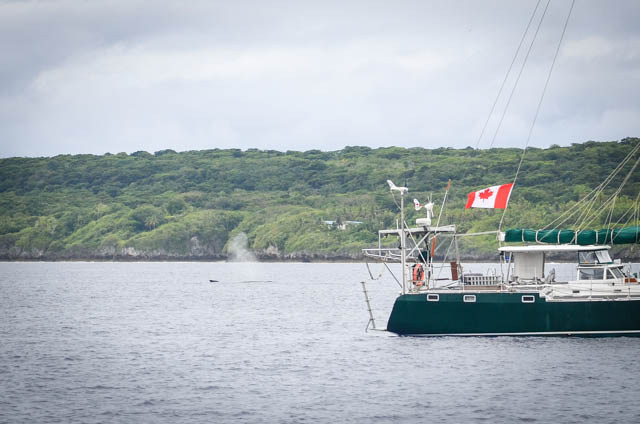
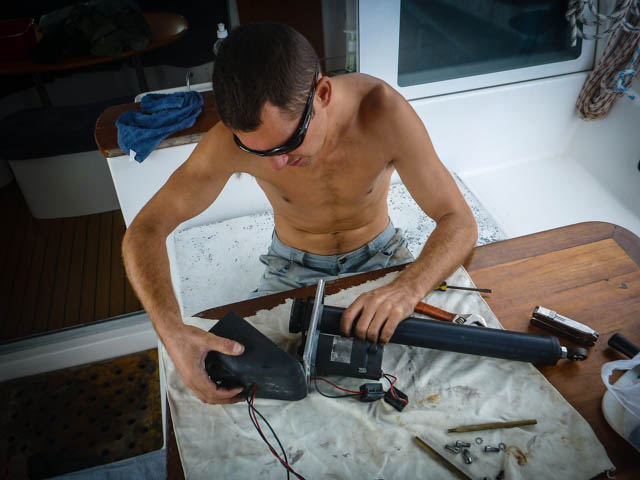
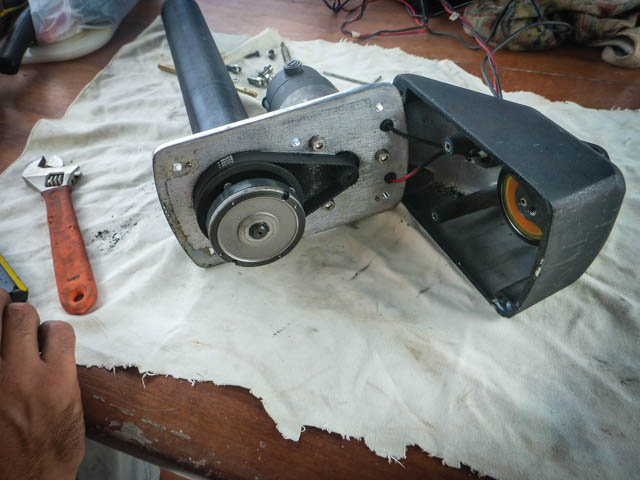
Tamakautoga (yeah, say that 10 times fast), is the next little village south of the anchorage and was having a festival with dancing, food, music, and such that we found our way to. There were a couple gringos there, but mostly it’s a local celebration. Apparently there is a tradition that the youth put on dances for the community, so we were delighted when six young, shirtless boys in sarongs and grass necklaces came out to dance. The music revved up and for a few minutes all seemed normal until an older gentleman walked out of the crowd and tucked a dollar bill into one of the boys’ loin cloths. What?! Then another person came up and tucked more money into their breeches. The boys kept dancing like nothing was out of the ordinary. Several other youth groups got up to dance, boys and girls, and the crowd kept tucking money in their cloths, for the girls the bills often went straight down the front of the shirt. It was a little distracting, not to mention illegal where I’m from! Also it was pretty windy, and notes kept falling out of they youths’ undergarments. Helpful revelers chased the wayward bills down, and re-stuffed them where the sun don’t shine. It reminded us of our friend Elizabeth. The Polynesian dancing… not stuffing money into the undergarments.
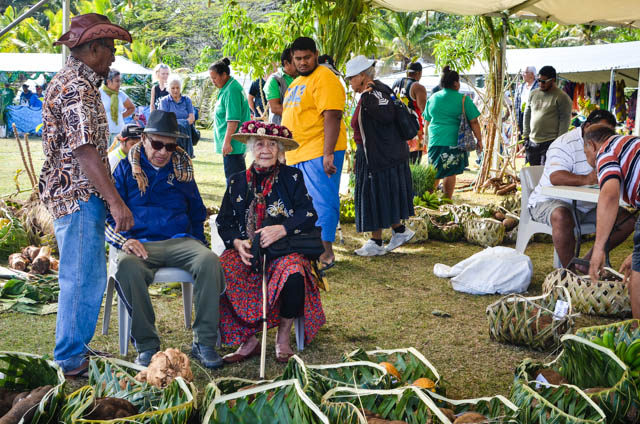
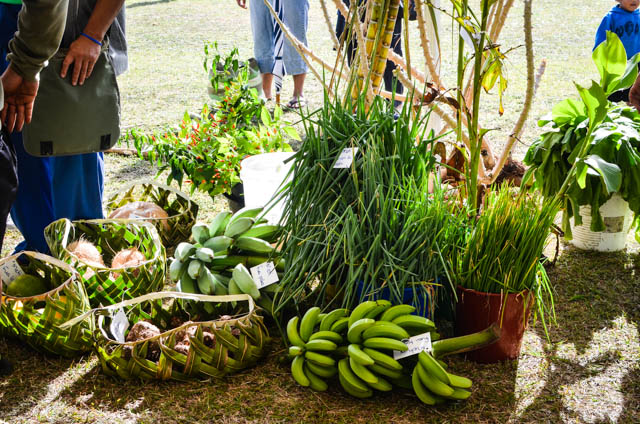
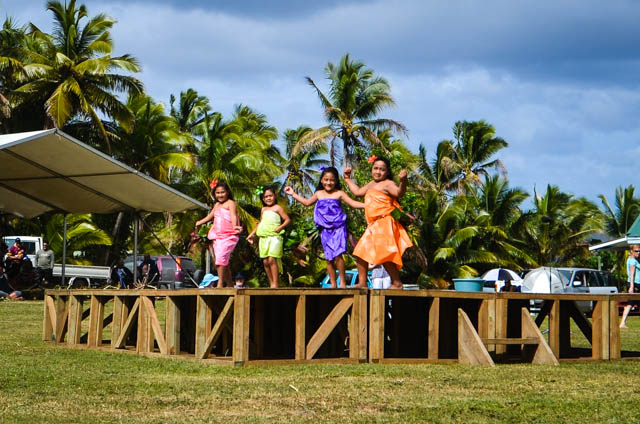
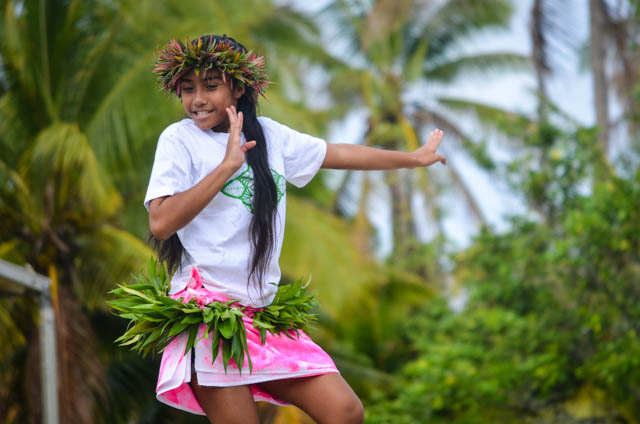
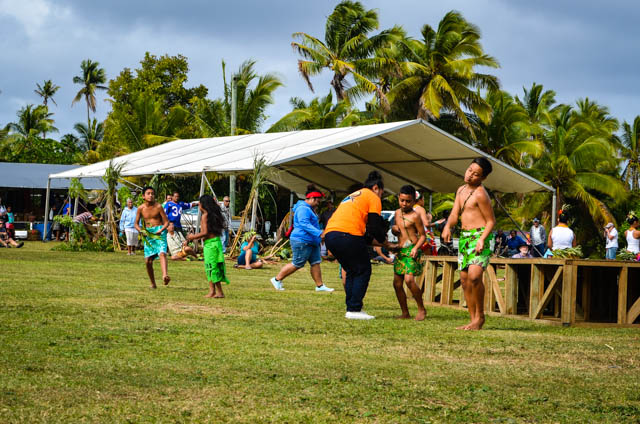
Niue is a perfect example of a raised atoll. The ancient coral has been cut by rain and sea for millennia and now the island is pocked with caves and chasms for the exploring. We followed a trail off the road to get to Togo Chasm and Anapala Chasm. Trees have figured out how to grow directly out of the rock on Niue. We weaved through sharp teeth of coral that tough vegetation was happily thriving on. The chasms were deep cut ravines near the sea. Seemed like a good place for a hermit to hide out.
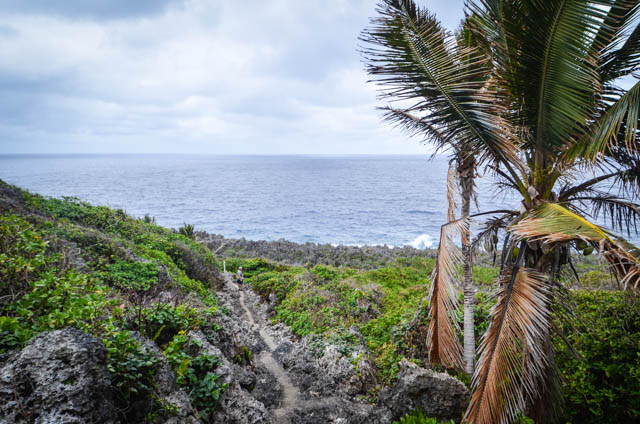
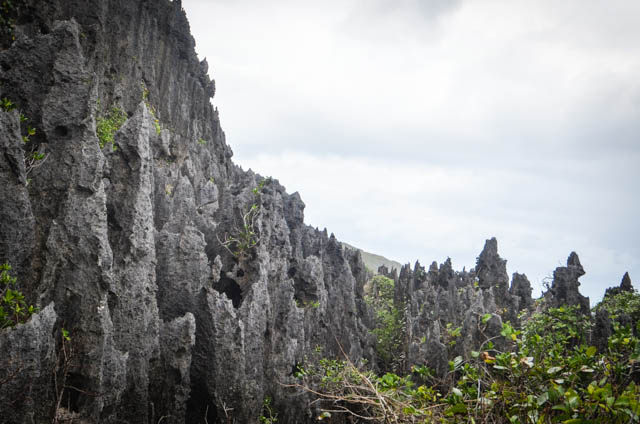
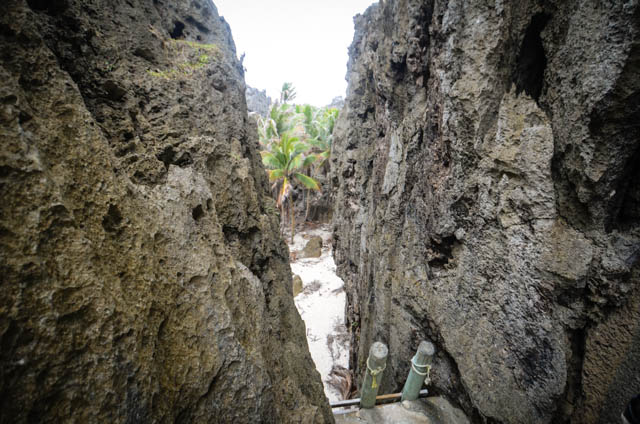
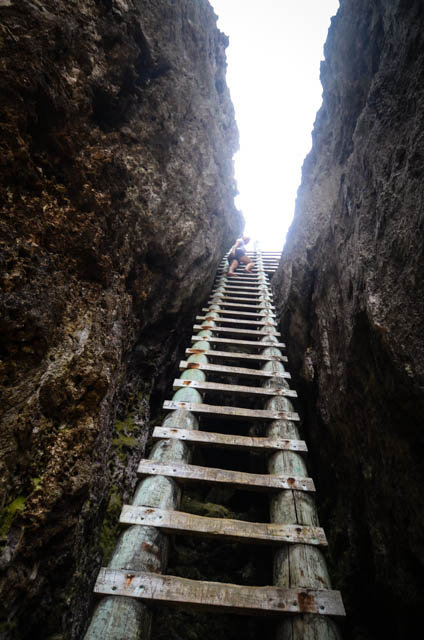
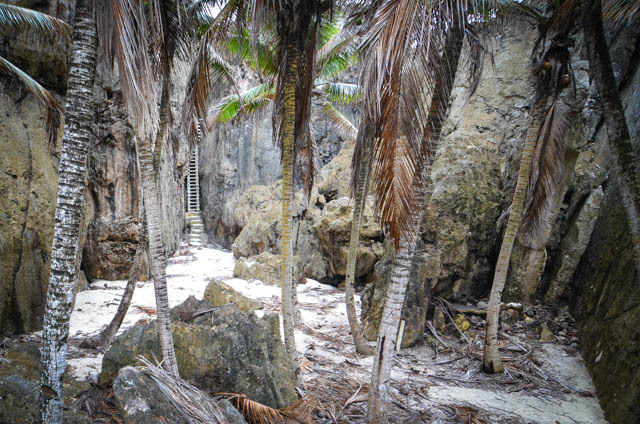
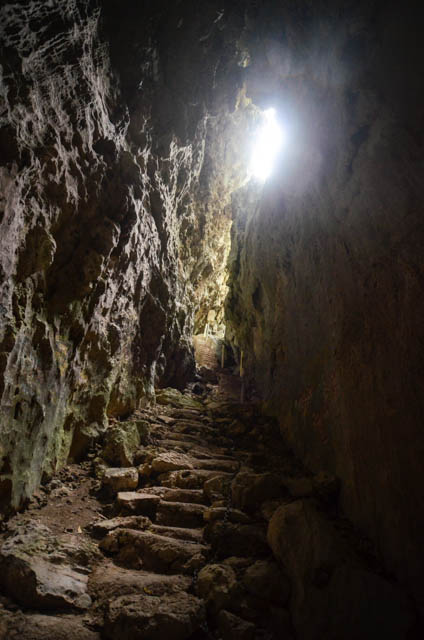
Went to church on Sunday to hear the Niuean hymn singing. I really wanted to take some shots of the church, but was enraptured with the choir. And I didn’t want to look like a schmuck. The bibles were written in Niuean and the service was given in Niuean as well. I think they said something like, “Be good to thy fellow man, and to the pius give free sinus medication.” Still working on my translations. It was a lot of fun getting dressed up in our Sunday finest, driving to the wharf in the dinghy and hauling it out with a crane. Sea spray on one’s vestments seems to be standard operating procedure for the faithful ‘round these parts.
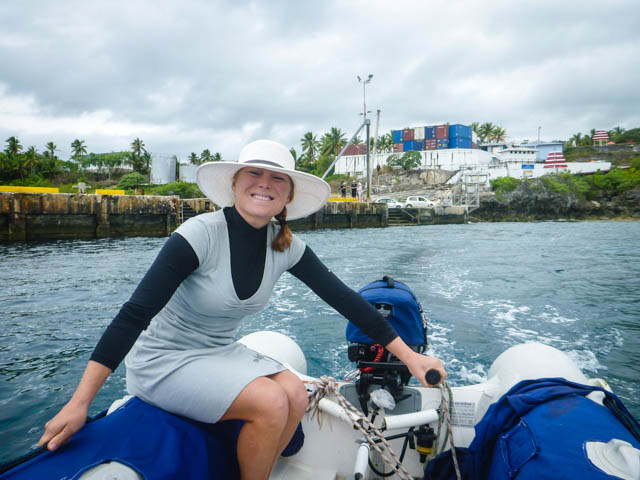
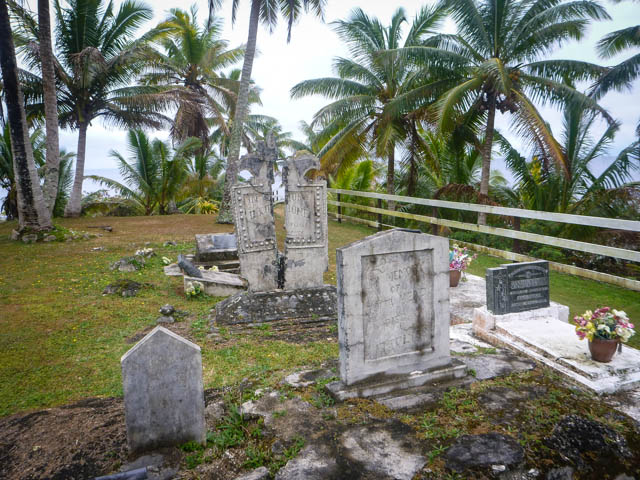
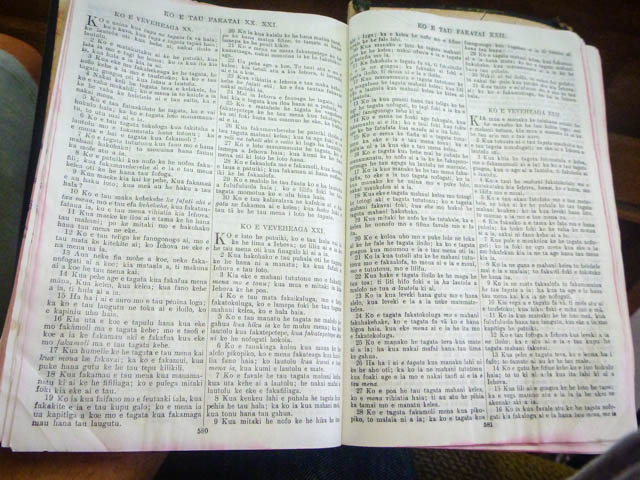
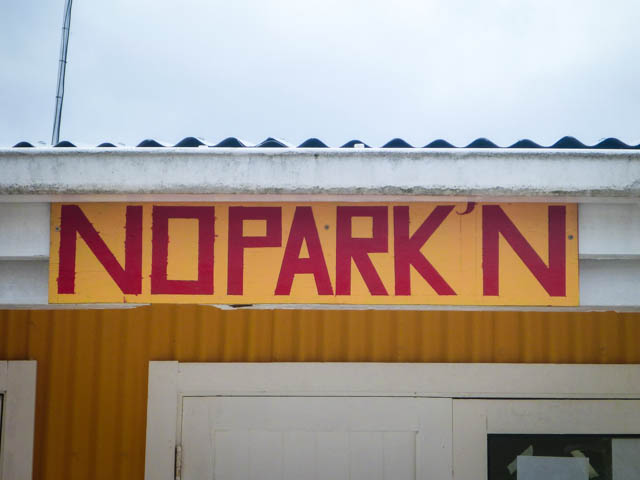
The humpback whales that frequent these waters feed in Antarctica all “summer” (Nov-March) then migrate to this area to berth their calves in the warm water in “winter” (May-Sept). Regulations in Niue prohibit snorkeling with the whales from your dinghy. It’s an understandable effort to keep impact on their behavior to a minimum by reducing the number of idiots buzzing them with outboards while they’re trying to give birth. I wouldn’t want some jerk flying one of those new fangled helicopter drones around my neonatal hospital room either. Creepers. Long story short, we went with the island’s only dive operation out to snorkel with the big guys. Notice the crossed krates on the dive company’s insignia. The whales were pretty active the day we went out, swimming fast and diving deep and often, which is bad when you want to chill with them on the surface. We saw a fantastic breech but only snorkeled with them while they ran deep. Still, the vibrations from their vocalization vibrates in your chest, airways, and sinuses. Floating atop a two thousand foot column of water pulsating from these monsters’ vocalizations is enough to make you tremble in your wetsuit. Or pee.
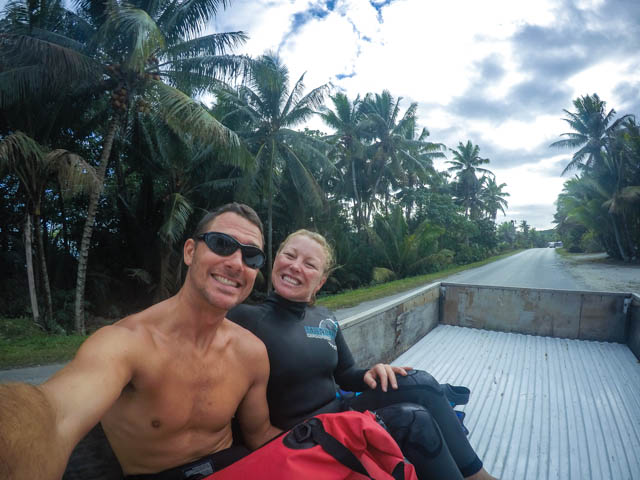
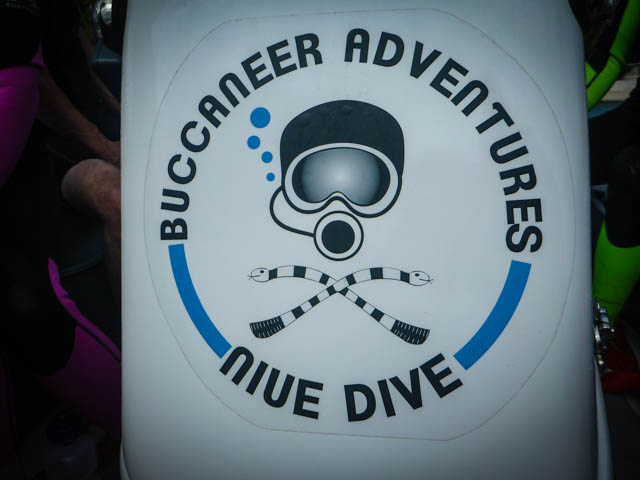
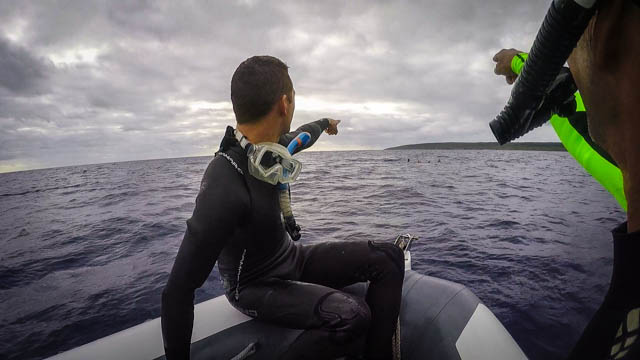
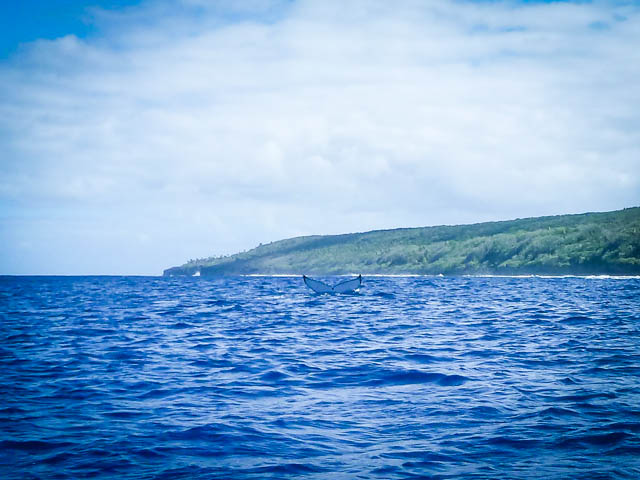
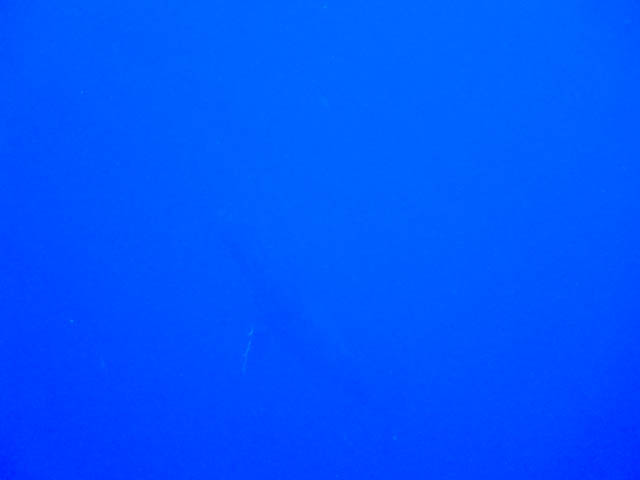
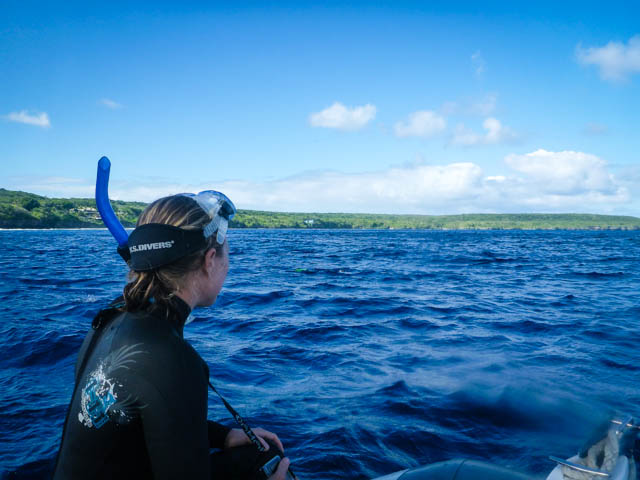
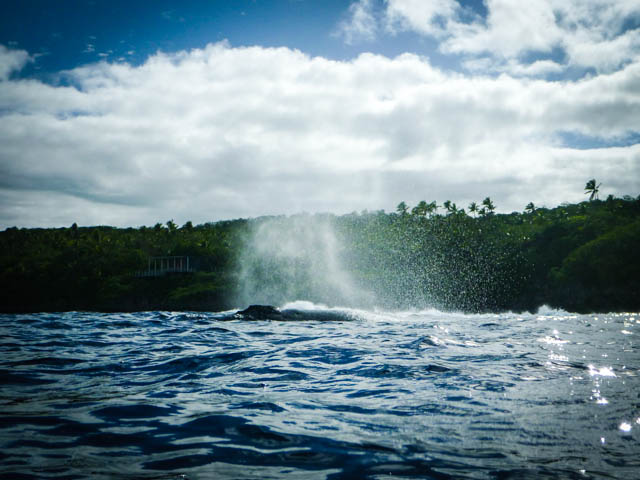
A few days later, we woke up the morning of our departure from Niue and Miranda wasn’t through with the whales yet. We went ashore and arranged to go out again that morning and try our luck one more time with Buccaneer Dive. This time the weather was calmer and sunnier which prompts more tranquil behavior from the humpbacks. We motored up to the ‘footprint’ of one that had just submerged. They leave a flat, glassy patch of water where they were on the surface previously. Following our guides we slid into the water and saw this big guy floating near the bottom in about 100 feet of water. He’s well camouflaged from the top; you can only see his white scarring. We waited in the water about ten minutes and he came back up. The first movement you could see was his four-foot pectoral fins rolling him almost onto his back so he could see us, revealing his white belly. He was 12 meters long and moved with an otherworldly grace for something so big. He came up and checked us out, blew with a jarring percussion and cruised slowly by us back down to the bottom. We hung out a bit, then took the launch to find others and give him a rest. Ended up snorkeling with him again later on. It was a great vibe on the boat; our Kiwi companions giggling with us like school girls. What is it about sea life encounters that does that?
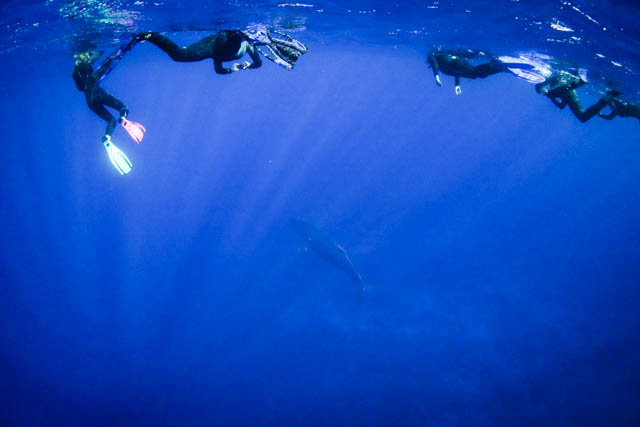
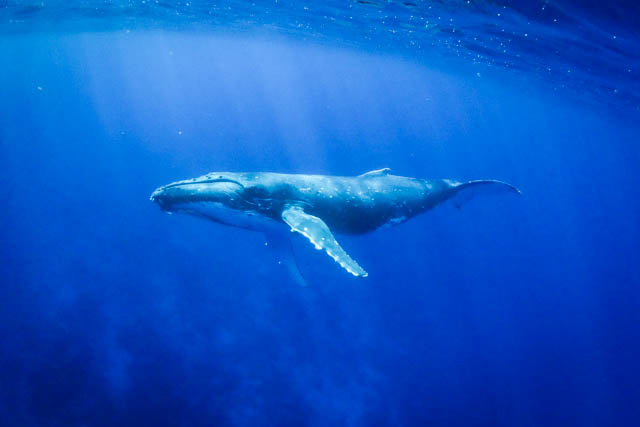
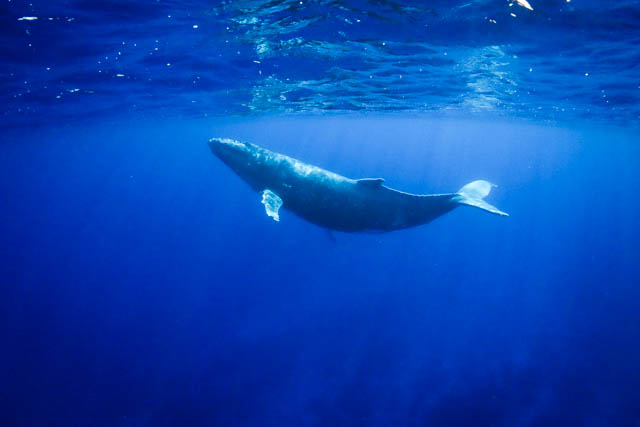
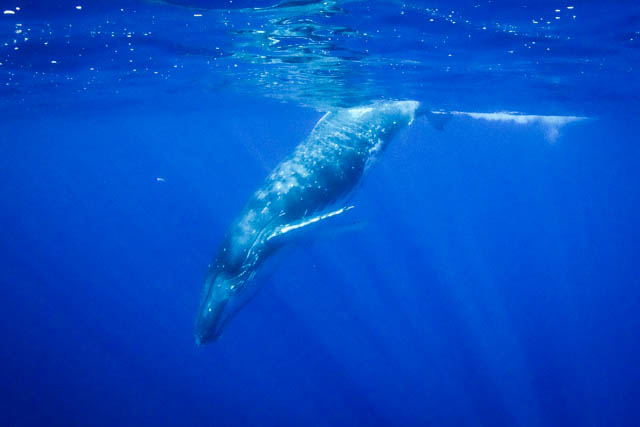
The shots above are Shannon’s shots, he owns the Buccaneer dive operation and came with us to spot whales, bringing his gorgeous DSLR dive camera. The shots below are ours, still, not terrible for a point-and-shoot.
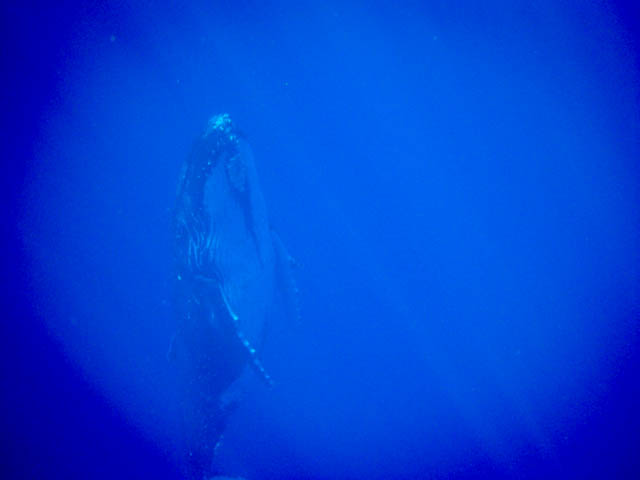
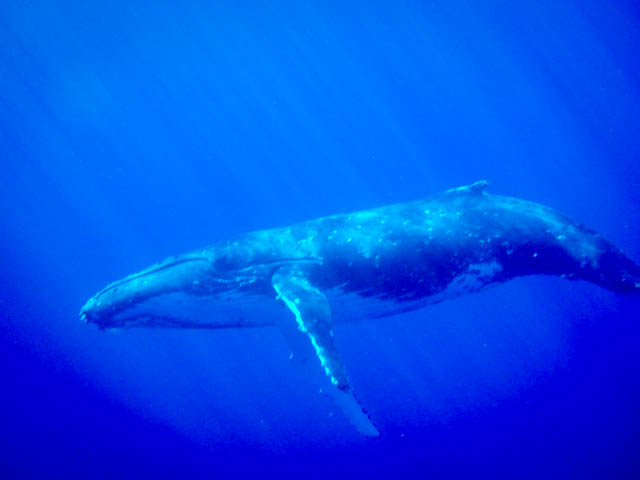
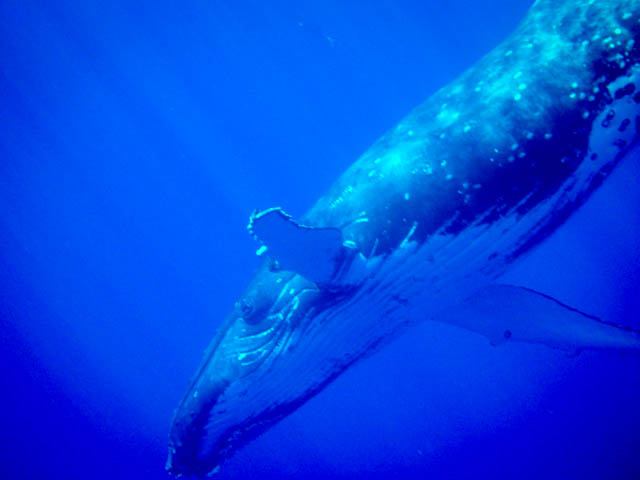
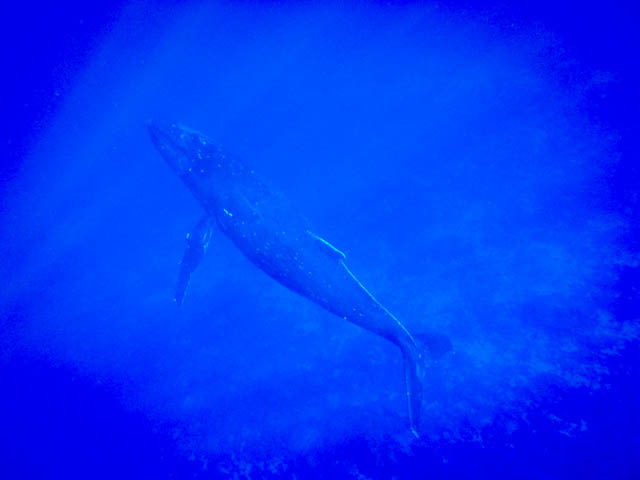
When we left shore that morning, Shannon assured us he had a good feeling we’d have great whale encounters that day. He claims that the whales can always tell when they are good people on his boat and can sense the “buena onda” aboard. Those kiwis we went out with must have been extra good folks to make up for our sorry tails. Either way, he was right, and Poseidon’s blessings were certainly with us that day.
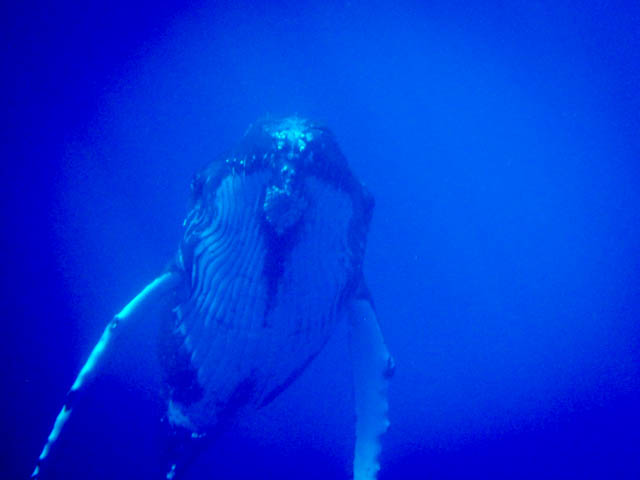
Niue was an accidental stop for us. We didn’t plan on making landfall here. Our four days of hand steering were made worth it after the experiences we had and good people we met in Niue. Just goes to show that it’s always best to follow the winds of fate that guide the boat. Itineraries are to sailing as calculus is to mollusks- just plain silly.
With that, we’re off to Tonga.
Land Ho! Geeze, I wasn’t this excited to make landfall even after our 23-day passage to the Marquesas. We had WAY more helps steering on that one. This was a pretty rough passage on us; hand steering required us to be out in the wind and spray, and actively steering is surprisingly taxing. We’d do three or four hour shifts and then fall in exhausted heaps into the berth while the other changed from PJ’s into salty deck clothes to take over, and find a good podcast to keep awake and focused on the compass. We wore scopolamine patches and ate little. Even when exhausted, trying to sleep with the boat’s ridiculous motion was difficult.
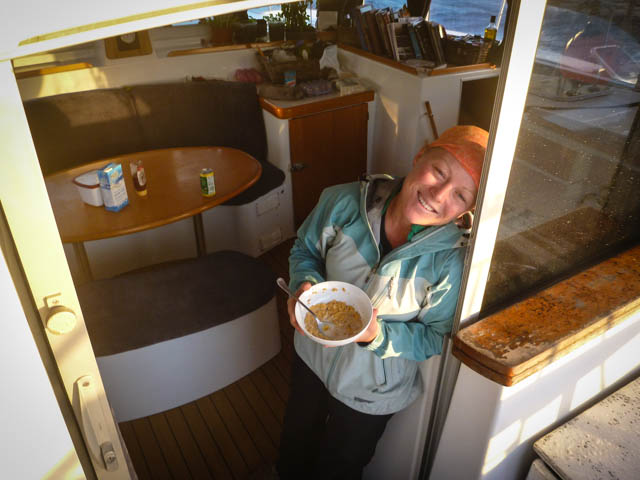
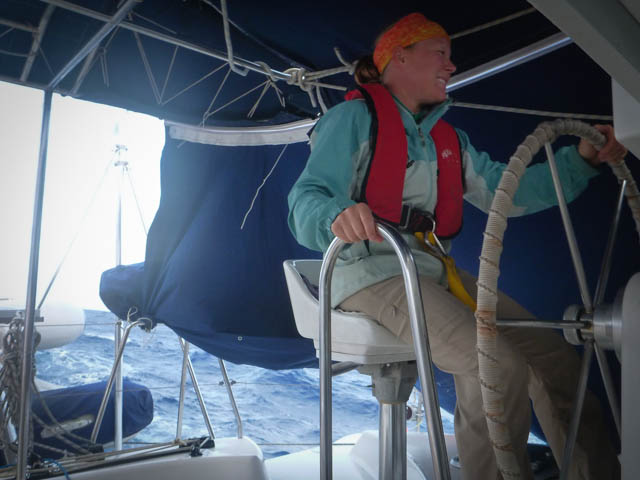
The boat motion, owing to her cat-like nature, was sometimes fluid and sometimes comically awkward. At times when we got crossing wave trains she seemed to almost crawl like an animal with tethered limbs, a flying squirrel or sea lion. Each corner of the boat pitched up at a different time, threatening to buck the skipper off the helm were we not attached. Then we’d get a long period, large swell from directly aft and Tayrona would ride that thing like a school bus down a sledding hill. We’d make 5 knots going uphill, then 11 knots going downhill. Very exciting, and easier than the quadruped shuffle until the swell sets changed again for the worse, back and forth.
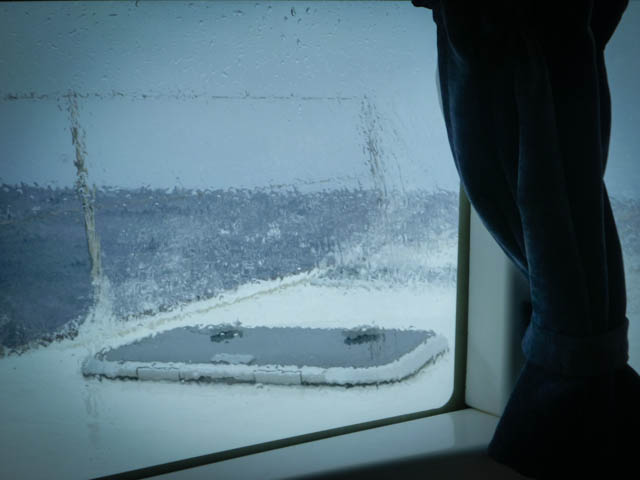
On occasion the stars would come out and we could steer a course using them. It’s much easier if you can aim for something on the horizon. For the most part we would cower under the Bimini and side covers following the compass. My eyes hurt after a few days of it. It’s also COLD! Sitting still in sixty degrees with 25 knots of wind for four hours made us layer up with everything we had aboard. Sissies…
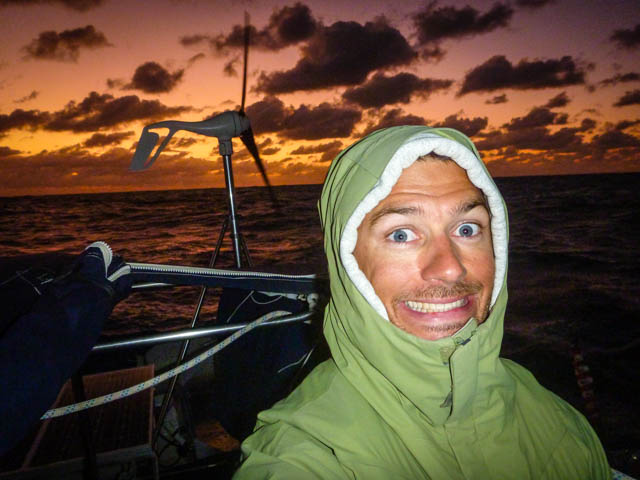
Watches blurred together, but this morning the sky cleared, though the wind and seas didn’t abate, and then there on the horizon was Niue. Swells slammed into the southern craggy coast, erupting in huge plumes of spray. Niue, also called The Rock of Polynesia, is 10 miles in diameter and the world’s largest coral island. Just offshore 1/4 mile the sea is 6000 feet deep, a stone throw from shore it’s 100 feet deep, then one or two paces from the cliff the reef is ankle deep. It’s like a skyscraper with the top floor sticking out of the water.
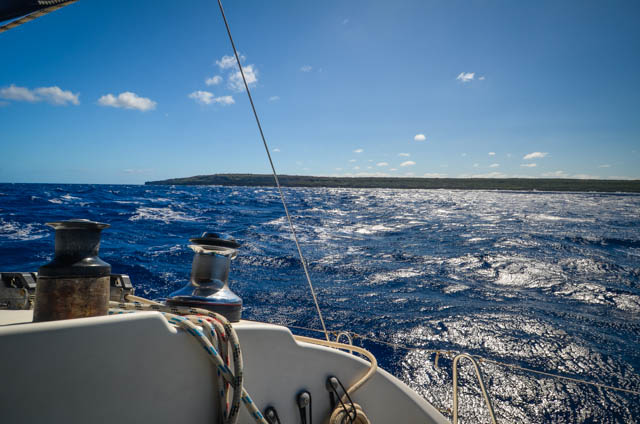
We sailed downwind, wing-wing past the coral cliffs heading north to the western bay near the ‘town’ of Alofi. Sailing wing-wing is annoying; one sail is always flagging, you have to be really attentive to the whole thing. I’m not sure why I waited until salvation was in sight, but I’m blaming the lack of sleep for my intricately woven string of blasphemies and oaths that erupted out of me like lurid confetti out of a party popper. I must have ranted and raved for a good half-hour about the idiocy of the whole idea of sailing. Eventually the tide of explicatives ebbed and we moored just off Alofi in 100 feet of calm, flat water.
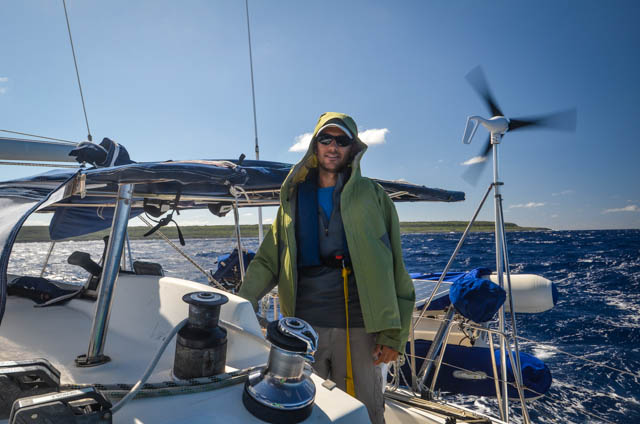
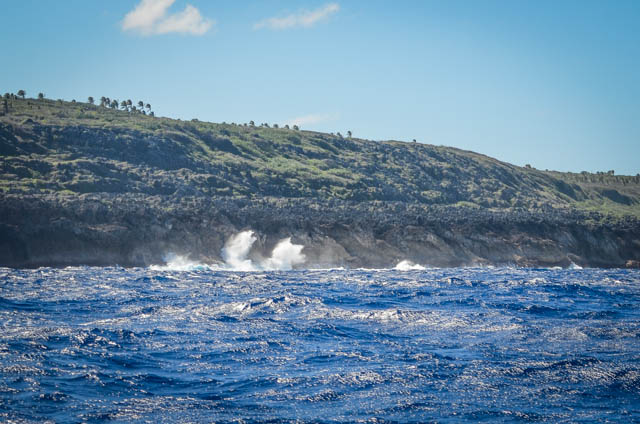
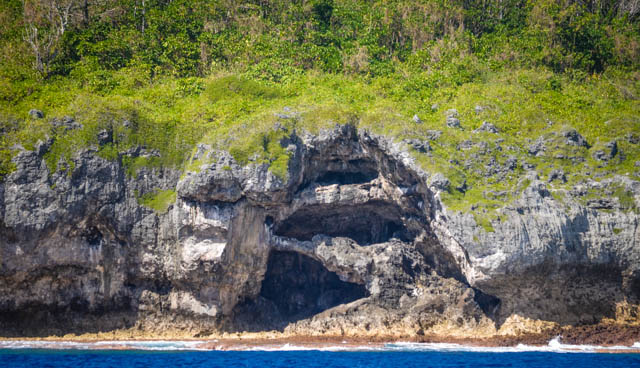
We took hot showers aboard, made real food, and cleaned the boat up. There was so much salt encrusting everything it felt like the decks had carpeting. The sun was setting low in the west, throwing orange hues, when we heard a mighty “PHHHHHHHHHT” from right next to the boat. We scampered over to the starboard rail in time to see the massive black rolling back of a humpback whale not ten feet from our transom. They were bigger than the boat and loitered around blowing plumes of spray (and snot, I presume) into the air; the orange sunset reflected off their backs. I’m sure it was the sea gods telling me to shut my big yapper and quit griping. I quickly retracted my hastily spoken words and Miranda decided to stay aboard too. Welcome to Niue.
